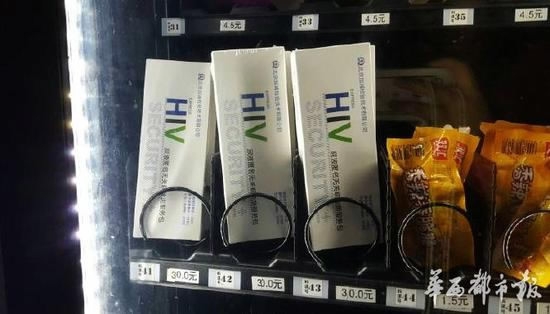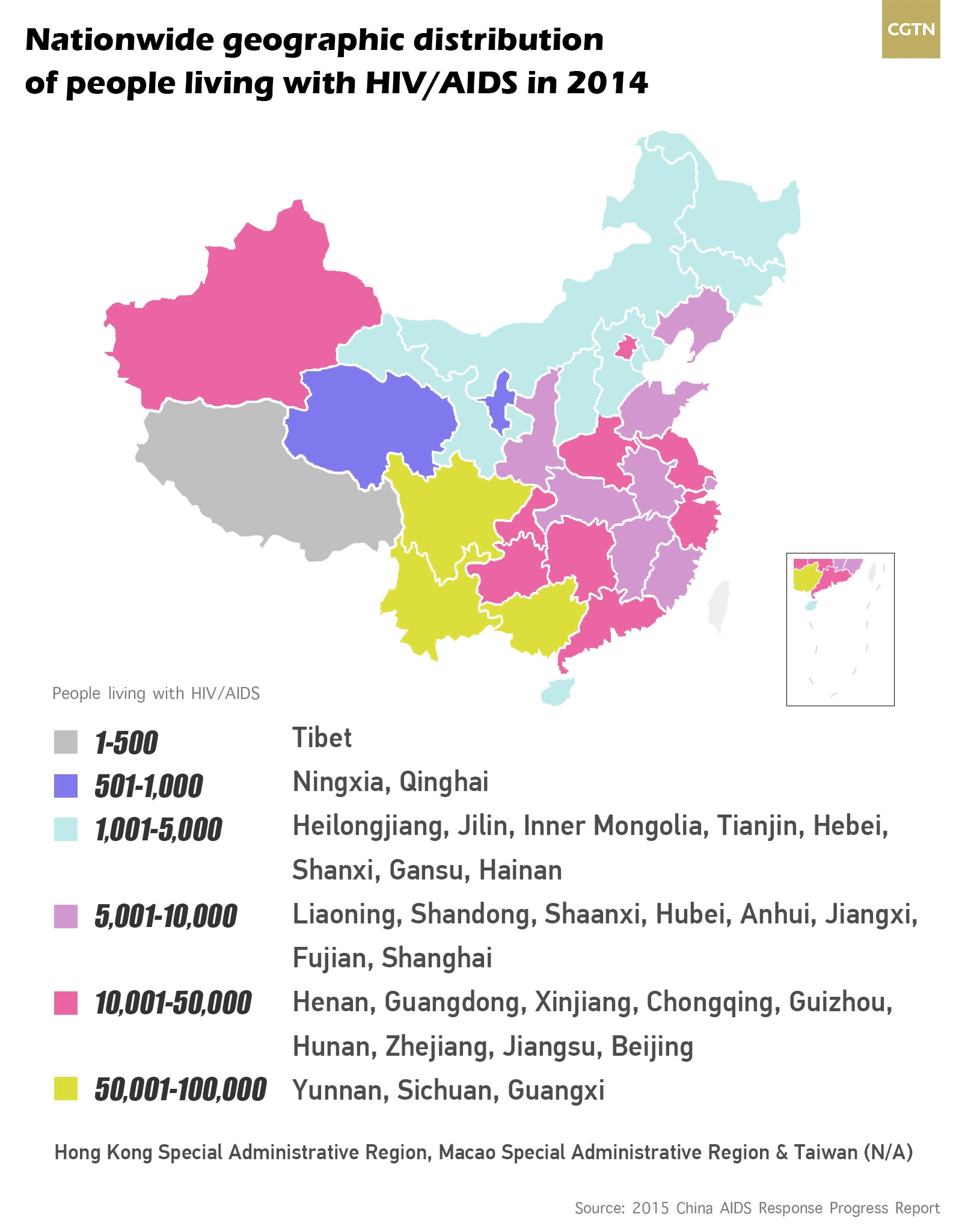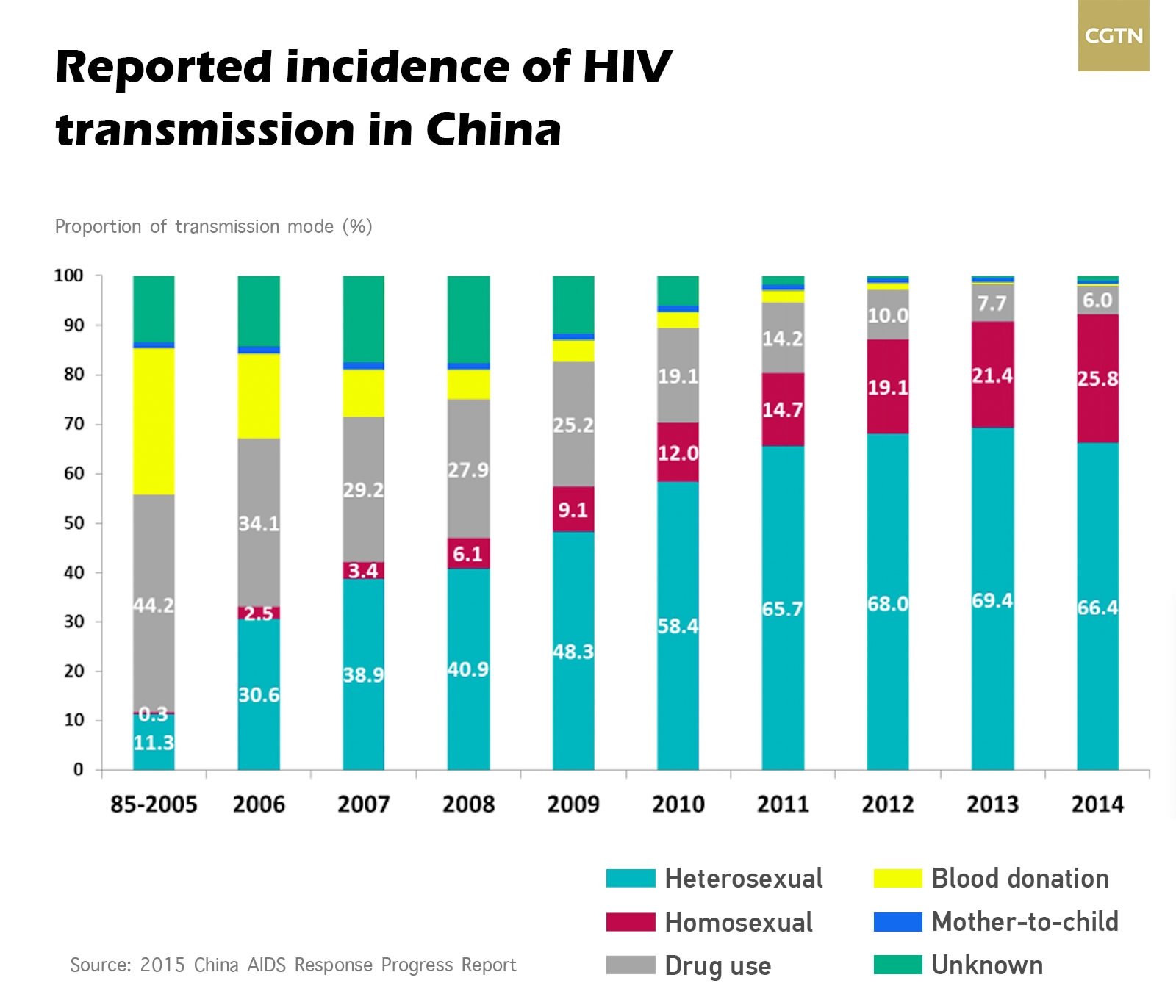Two universities in the city of Harbin have started selling human immunodeficiency virus (HIV) testing kits in vending machines as part of the country's effort to curb an upward trend of young people infected with HIV.
The kits, which cost 30 yuan each (less than five US dollars), are sold alongside snacks and drinks in the machines at Harbin Medical University and Harbin University of Science and Technology in Heilongjiang Province.

A university in Sichuan sells HIV testing kits in vending machines on campus last year. /Huaxi Daily Photo
A test-taker buys the kit, collects his urine sample, and drops it back to the deposit drawer, Zhao Donghui, a senior official from the Heilongjiang Provincial Center for Disease Control and Prevention (CDC), explained the procedure.
Medial workers from the CDC will be notified by a sensor wired to the drawer, and they will come to retrieve the sample, do the testing, and post it online, he said.
Only the test taker can view the result when they log on the center's website with the code number in the kit, he added.
"The whole process is anonymous."
Similar kits sell for around 286 yuan (around 45 US dollars) on online shopping markets like Taobao.
The move made headlines last year as southwest Petroleum University in Sichuan Province started to sell the HIV testing kits, as the province has a high-prevalence of HIV and AIDS, and was among the top three Chinese provinces that accounted for nearly half of China's 575,000 cases, according to numbers from the Chinese Center for Disease Control and Prevention (China CDC).

CGTN Photo
HIV/AIDS infection rates among China's young people at the age of 15-24 are growing at an alarming rate.
From 2011 to 2015, reported infections grew in the age group by 35 percent. At the end of 2015, about a total of 9,200 young people were identified as HIV positive. Last year alone, there were at least 2,321 students who tested HIV positive, over four times higher than in 2010.
Before 2009, most reported HIV infections in the country were caused not by sex but by drug use, blood transfusions, mother-to-child transmission and an “unknown” factor as high as 17.5 percent, according to the figures from the China CDC.
But in 2014, sexual transmission accounted for more than 92 percent of all new infections, the figure shows.

CGTN Photo
Local health officials said they hope to raise awareness of safe sex and HIV/AIDS prevention among young people.
Wu Zunyou, head of the AIDS and HIV prevention under China CDC, said the rise of new HIV cases on campus, especially among young men, should sound a warning.
"I interviewed 100 HIV positive students and was saddened to learn that they did not know enough to protect themselves," Wu said.
An anonymous student who identified as homosexual said he and his boyfriend plan to buy a testing kit from the vending machine.
He said he goes to the local CDC to get tested every three months.
"It is all about health and there is nothing to be shy about," said the student, who chose to remain anonymous.
But doing an HIV test is a taboo for many students. Less than ten kits were sold in the vending machine installed in Harbin University of Science and Technology since last November.
1059km










